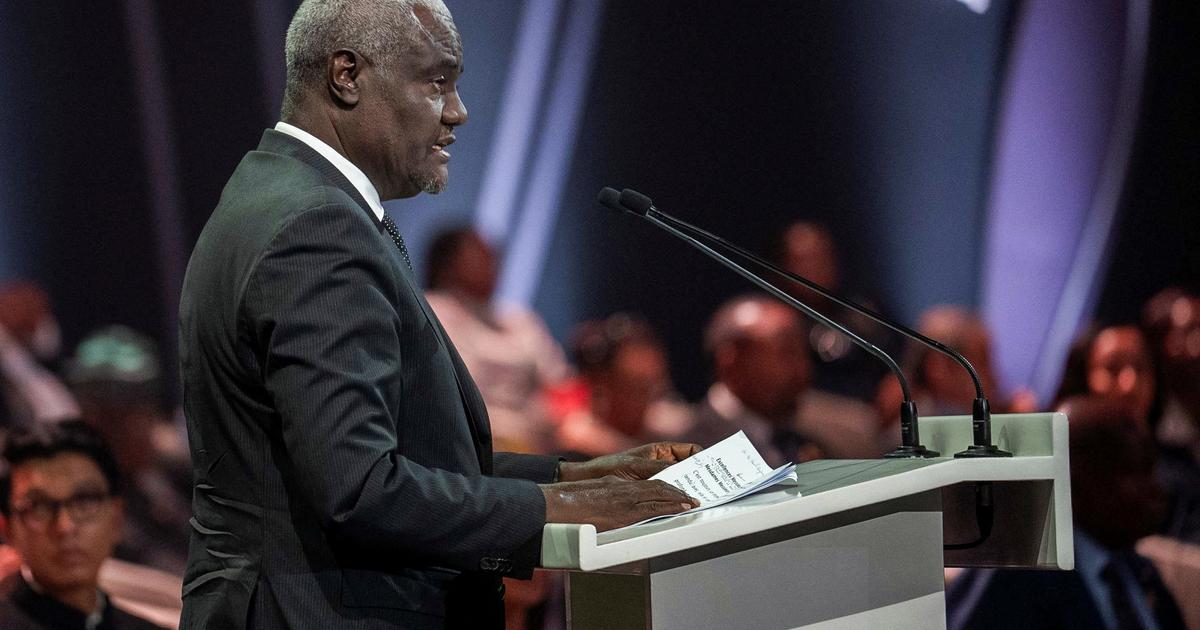Election posters in Berlin.
In the foreground, that of Olaf Scholz, Social Democratic candidate and Finance Minister of the current government of Angela Merkel.
In the background, that of the conservative candidate, Armin Laschet.FABRIZIO BENSCH / Reuters
The Germans will go to vote next Sunday with a strange feeling.
For the first time in 16 years it is not written who will lead the country for the next four years.
The omnipresence of Angela Merkel had plugged some flaws in the system that are now exposed.
The
eternal chancellor
conveyed a feeling of solidity and predictability, of confidence in her decisions, which now, when the appointment with the polls approaches, none of the candidates can replace.
Merkelian
stability
ends with it.
The fragmented vote, the multiple possibilities of coalition and the absence of a strong leader completely change the German political map.
Certainty gives way to unease.
More information
Scholz extends his lead after the second election debate in Germany
Merkel campaigns against a left-wing union as her party bleeds out in polls
One week before the elections, anything is possible. And even more so with the high percentage of undecided. Although the polls give a slight advantage to the Social Democrat Olaf Scholz, no one rules out that the Christian Democrat Armin Laschet maintains the chancellery that his party has held for 52 of the 72 years in the history of the Federal Republic. It is also impossible to anticipate which parties will enter the government. From the liberals to the post-communists of Die Linke, passing through the Greens - the bride and groom willing to go to any wedding to get the ring - all can be part of the coalition that governs Germany. All, except the extreme rightists of Alternative for Germany (AfD) vetoed by the rest of the parties for any type of collaboration.
Another novelty is that the leader does not run for re-election.
Chancellors were thrown out, they never left voluntarily.
Thus, Merkel equals Helmut Kohl's record in power, 16 years.
But unlike him, he leaves without having lost an election.
“Germany has never experienced such open elections.
The only sure thing is that it is moving towards a tripartite and that the possibility of a green chancellor has evaporated ”, sums up the professor of European Politics Ulrike Guérot.
Merkel's shadow is very long.
Their presence attracted centrist votes to the Christian Democratic Union (CDU) that it is now clear that they were loaned.
If the polls are not wrong, his party will receive slightly more than 20% of the votes, an absolute catastrophe for a formation that considered that its soil was at 30%.
Chancellor Angela Merkel, visiting an Ebola vaccine manufacturing plant in Burgwedel, Germany, last Friday. Julian Stratenschulte / AP
Join EL PAÍS now to follow all the news and read without limits
Subscribe here
The Social Democratic Party (SPD) may win - and even elevate Olaf Scholz to the chancellery - but it will not have a great result either: the 25% that the polls give it would be the third worst result in its history, far from the 38% of Gerhard Schröder the last time the SPD won an election.
These percentages imply the practical disappearance of the concept of mass parties.
The acronyms don't seem to matter too much anymore.
The borders have been blurred.
And polls show that between Scholz and Laschet, the least bad is the first.
Voters do not like any of the three options they can choose on the 26th. Scholz, vice chancellor and finance minister of the grand coalition government, "is the closest thing to being a successor to Merkel," says Uwe Jun, Professor of Political Science at the University of Trier. “Stability is a very important factor in Germany. They know him, he has been in politics for 30 years ”, he adds. Laschet "does not trust because he has failed to demonstrate leadership skills," he concludes. The Greens' candidate, Annalena Baerbock, lacks experience and has made mistakes during the campaign - amplified by the opposition and the media - that have left the perception that she is unprofessional. If it depended only on the youngest voters (between 18 and 29 years old), Germany would have its first green chancellor this year.
Do these elections mark Germany's entry into a period of instability?
Not necessarily.
The parties there carry in their DNA the need to agree.
And although this is the first time that there will be a tripartite in the federal government, this formula is common in the States.
It will be more difficult, but not impossible.
“Germany enters the phase of reinventing the way the system works.
If these are finally the electoral results, they will have to find the necessary rods to form a government, "says green former deputy Daniel Cohn-Bendit.
Only the candidate remains
The new generations increasingly identify less with the two great parties that have led the country since 1949. If to this we add that in this campaign there has not been a central issue that polarizes, as happened in 2017 with the migration crisis and the entry of AfD in parliament, the result is that "you only have the candidate left", summarizes Jun. The climate crisis, the most important issue for Germans according to polls, is not playing that determining role because all parties agree on that it is the greatest threat to the country; They only differ in the methods they would use to solve it.
“Before there was a harmony between the candidate and the party. The candidate has always been important and influenced the vote. But this year is different. Scholz is much more popular than the SPD. He pulls his party, not the other way around, ”says Peter Matuschek, head of the Department of Political and Social Research at the Forsa demographic institute. On the contrary, the CDU previously had the advantage of a strong candidate. Experts estimate that at least 10 voting points for the Conservatives were due exclusively to
the Merkel effect
. Without her, that support has evaporated.
The fragmentation will translate into months of complicated negotiations to form a government, analysts agree. Nobody rules out that Merkel will continue to be chancellor when 2022 arrives. A tripartite party also complicates the management. "We Germans are very legalistic and in coalition contracts everything is written down," explains Matuschek. “This can lead to some paralysis for the next four years. The parties would agree to a minimum, they would agree on the essentials at the beginning. But later it would be difficult to negotiate further, that is, to govern ”.
Do these elections mark Germany's entry into a period of instability?
Not necessarily.
The parties in that country carry in their DNA the need to agree.
And although this is the first time in half a century with a tripartite in the federal government, this formula is common in the States.
It will be more difficult, but not impossible.
“Germany enters the phase of reinventing the way the system works.
The parties will have to find the necessary rods to form a government, ”says green former deputy Daniel Cohn-Bendit.
Laschet and Scholz, on a roller coaster
These weeks have not been easy for Laschet. His party's voting intention has plummeted since it was confirmed that it would be he, and not the more popular Bavarian leader, Markus Söder, who would aspire to the chancellorship. His laughs caught on camera as German President Frank-Walter Steinmeier addressed the flood victims were another nail in the coffin. The two television debates - the third and last will arrive on Sunday night - have not helped him either. And this week he had a new stumble with a children's interview, in which he was seen losing patience with the incisive questions of two 11-year-old boys.
But it should not be underestimated. They did so in 2017 when he ran for election in North Rhine-Westphalia, the country's most populous state and jewel in the crown of the Social Democrats. And he froze the smile of his rivals with a victory that the polls had not anticipated. He also managed to prevail this year in the primaries to lead the CDU, beating the favorite of the Conservative flank, Friedrich Merz.
The campaign has also been dizzying for Scholz, who for months was third in voting intention, behind the Greens and far behind the Conservatives. It seemed that his party was looming irrelevant. Until in mid-August it began to come back and at the end it already surpassed the CDU. When voters became aware that Merkel was no longer on the election posters, they turned to the candidate most similar to her. As Ralph Bollmann, author of a recent biography of the Chancellor, puts it, it only took "playing Merkel's impersonator to get to the top."
The last stretch of the campaign could be complicated for him.
On Monday he must appear before Parliament to explain a financial scandal known two weeks before the elections.
The Osnabrück Public Prosecutor's Office, headed by a former CDU politician, registered the Ministry of Finance and the Ministry of Justice in the framework of an investigation against a government office that pursues money laundering.
Although Scholz is not the object of the investigations, the case can hurt him, especially since it recalls other scandals that occurred under his mandate, such as the Wirecard fiasco, for which he also had to testify, or the case of tax fraud known as Cum -Former.
Follow all the international information on
and
, or in
our weekly newsletter
.















